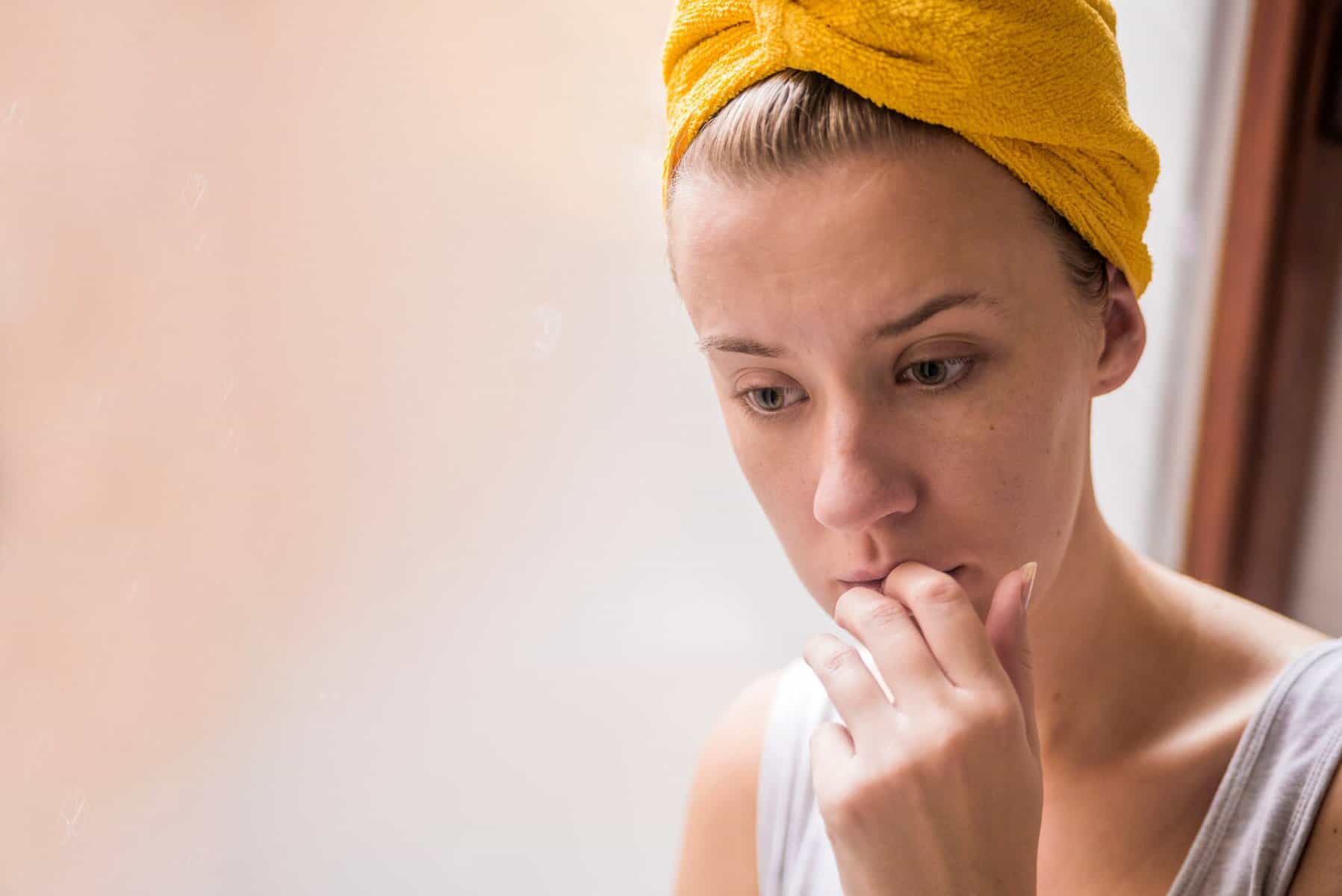
Combat Stress and Oxidative Stress on Skin Cells
Did you know that stress and oxidative stress can wreak havoc on your skin cells?
Stress is an inevitable part of our lives, but its impact on our skin is often overlooked. When we are stressed, our bodies produce stress hormones like cortisol, which can lead to increased inflammation and the release of free radicals in the skin. These free radicals, along with external factors like pollution and UV exposure, contribute to oxidative stress on our skin cells.
Oxidative stress occurs when there is an imbalance between the production of free radicals and the body’s ability to neutralize them with antioxidants. This stress can result in cellular damage, weakened skin barrier function, and accelerated skin aging.
But fear not, because antioxidants are here to save the day!
Key Takeaways:
- Stress and oxidative stress can have a detrimental effect on our skin cells.
- Stress hormones and external factors can lead to the release of free radicals in the skin.
- Oxidative stress occurs when there is an imbalance between free radicals and antioxidants.
- Oxidative stress can cause cellular damage and accelerate skin aging.
- Antioxidants play a crucial role in neutralizing free radicals and preserving skin health.
Understanding Oxidative Stress and Its Impact on Skin
Oxidative stress is a key factor in the aging process of the skin. It occurs when there is an imbalance between the production of reactive oxygen species (ROS) and the skin’s ability to neutralize them through its antioxidant defense mechanisms. This imbalance leads to cellular damage and compromises the skin’s natural repair and rejuvenation processes.
Managing oxidative stress is crucial for maintaining optimal skin health and preventing premature aging. By understanding the underlying mechanisms of cellular regeneration and skin repair, we can develop effective strategies to combat oxidative stress and promote skin aging prevention.
One of the key mechanisms by which our skin repairs itself is through cellular regeneration. Skin cells constantly undergo renewal to replace old or damaged cells. However, oxidative stress disrupts this process by damaging the DNA and proteins within the skin cells, impairing their ability to regenerate.
Cellular Regeneration and Skin Repair Mechanisms
When the skin is exposed to oxidative stress, the production of ROS increases, causing damage to the cellular components. This damage triggers a cascade of events within the skin cells to initiate repair mechanisms. One crucial aspect of cellular regeneration is the activation of antioxidant enzymes that neutralize ROS and mitigate their harmful effects. These enzymes work to repair the structural integrity of the skin cells and restore their normal function.
Additionally, the skin relies on collagen and elastin proteins for its strength and elasticity. Oxidative stress can lead to the degradation of these proteins, resulting in skin aging and the formation of wrinkles. To counteract this, the skin utilizes repair mechanisms such as collagen synthesis and fibroblast activation.
Strategies for Managing Oxidative Stress to Prevent Skin Aging
To manage oxidative stress effectively and prevent skin aging, it is essential to incorporate certain strategies into our skincare routine and lifestyle.
- 1. Antioxidant-rich skincare products: Choose skincare products that contain antioxidants such as vitamins C and E, green tea extract, and coenzyme Q10. These antioxidants help to neutralize ROS and protect the skin from oxidative damage.
- 2. Healthy diet: Consume a diet rich in fruits, vegetables, and other antioxidant-rich foods. These foods provide the necessary nutrients and antioxidants to combat oxidative stress from within.
- 3. Sun protection: Protect your skin from harmful UV rays by wearing sunscreen and avoiding excessive sun exposure. UV radiation is a significant source of oxidative stress on the skin.
- 4. Stress management: Chronic stress can contribute to oxidative stress. Incorporate stress management techniques such as exercise, meditation, and adequate sleep to reduce stress levels and promote overall skin health.
By implementing these strategies, we can effectively manage oxidative stress, support cellular regeneration, and enhance the skin’s repair mechanisms. This, in turn, aids in the prevention of skin aging and promotes a more youthful and vibrant complexion.
The Role of Antioxidants in Skin Cell Rejuvenation
As we discussed in the previous section, oxidative stress and the impact of free radicals can cause significant damage to our skin cells. To counteract these harmful effects and promote skin health, the role of antioxidants is crucial.
Antioxidants are compounds that help neutralize free radicals, preventing them from causing further damage to our skin cells. By doing so, antioxidants play a vital role in preventing premature aging and maintaining a youthful complexion.
One of the primary ways antioxidants promote skin cell rejuvenation is by stimulating the process of collagen production. Collagen is a protein that provides structure and elasticity to our skin. However, as we age, collagen production naturally decreases, leading to the appearance of wrinkles and sagging skin.
Incorporating antioxidants into our skincare routines can help boost collagen production and improve skin firmness and elasticity. Antioxidant-rich ingredients such as vitamins C and E, green tea extract, and coenzyme Q10 are known for their powerful anti-aging properties.
“The use of antioxidant serums and creams can effectively combat the damaging effects of free radicals on the skin, promoting a more youthful and radiant appearance,” says Dr. Emily Johnson, a renowned dermatologist.
Additionally, antioxidants help protect our skin from external aggressors, such as UV radiation and environmental pollutants, which can further contribute to oxidative stress. By shielding our skin from these harmful factors, antioxidants aid in maintaining its overall health and vitality.
It’s important to note that incorporating antioxidants into our skincare routine is not limited to topical products alone. Consuming a diet rich in antioxidant-rich foods, such as berries, leafy greens, and nuts, can also provide internal support for skin cell rejuvenation.
By understanding the vital role of antioxidants in preventing and repairing skin cell damage, we can take proactive steps to maintain a healthy and radiant complexion. Whether through topically applied skincare products or a nutrient-rich diet, incorporating antioxidants into our daily regimen can significantly contribute to the rejuvenation of our skin cells.
Conclusion:
Combat Stress and Oxidative Stress on Skin Cells
In conclusion, combatting stress and oxidative stress is crucial for maintaining a healthy complexion. Understanding the detrimental effects of these factors and implementing effective antioxidant strategies can protect and revitalize our skin. Prioritizing stress management and incorporating antioxidant-rich skincare products and practices into our daily routines is essential.
By doing so, we can promote skin health and prevent premature aging caused by oxidative stress. Stress and oxidative stress can lead to skin cell damage, resulting in visible signs of aging such as wrinkles, fine lines, and a dull complexion. However, with the right approach, we can minimize these effects and maintain a youthful appearance.
Using antioxidants is key to combating the negative impact of stress on our skin. Antioxidants help neutralize harmful free radicals that can cause damage to skin cells. These powerful compounds can be found naturally in certain foods such as berries, green tea, and dark chocolate. Including these antioxidant-rich foods in our diet can support overall skin health.
Additionally, incorporating skincare products that contain antioxidants can provide an extra layer of protection. Look for ingredients like vitamin C, vitamin E, and resveratrol in your skincare routine. These antioxidants can help replenish and rejuvenate the skin, promoting a radiant and youthful complexion.
FAQ
Q: How does stress and oxidative stress affect skin cells?
A: Stress and oxidative stress can have detrimental effects on skin cells. Stress increases the production of cortisol, which can disrupt the skin’s barrier function and impair its ability to retain moisture. Oxidative stress, on the other hand, occurs when there is an imbalance between free radicals and antioxidants in the body, leading to cellular damage and accelerated aging of the skin.
Q: What is the importance of antioxidants for skin health?
A: Antioxidants play a crucial role in maintaining optimal skin health. They neutralize free radicals and protect the skin from oxidative stress-induced damage. Antioxidants promote cellular regeneration, support skin repair mechanisms, and help prevent premature aging. Incorporating antioxidant-rich foods and skincare products can help fortify the skin’s natural defense system and promote a healthy, youthful complexion.
Q: How can oxidative stress be managed to prevent skin aging?
A: Managing oxidative stress is vital to prevent skin aging. Here are some strategies to consider: 1. Maintain a healthy diet rich in antioxidants: Consume a variety of fruits, vegetables, and whole grains to ensure an adequate intake of antioxidants. 2. Use antioxidant-rich skincare products: Look for serums, creams, and lotions that contain antioxidants like vitamins C, E, and green tea extract. 3. Protect your skin from sun damage: Wear sunscreen with a high SPF, seek shade during peak sun hours, and wear protective clothing to prevent UV-induced oxidative stress. 4. Practice stress management techniques: Engaging in activities like meditation, yoga, and deep breathing exercises can help reduce stress levels and mitigate oxidative stress on the skin. 5. Get enough sleep: Prioritize quality sleep to allow the skin to repair and regenerate itself effectively. By incorporating these habits into your lifestyle, you can effectively manage oxidative stress and promote skin health.
Q: How do antioxidants promote skin cell rejuvenation?
A: Antioxidants play a vital role in promoting skin cell rejuvenation. They neutralize free radicals, which are unstable molecules that can cause cellular damage. By preventing oxidative stress, antioxidants help protect and repair skin cells, allowing for more effective cellular regeneration. Regular use of antioxidant-rich skincare products can boost collagen production, improve skin elasticity, and enhance overall skin tone and texture.
Q: How can I incorporate antioxidants into my skincare routine?
A: Incorporating antioxidants into your skincare routine is relatively simple. Look for skincare products that contain potent antioxidants such as vitamins C, E, and green tea extract. These can be found in serums, moisturizers, and even facial masks. Additionally, consuming a diet rich in antioxidant-rich foods, such as berries, leafy greens, and nuts, can provide your body with the necessary nutrients for skin health. Remember to always patch test new skincare products and consult with a dermatologist if you have any concerns.
Related read: Natural Anxiety Management Tips | No Meds Needed








